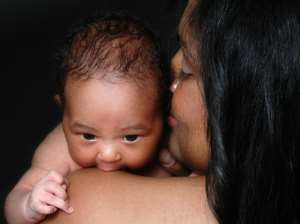
What could be causing my baby’s poor appetite?
Know this: Babies grow at the fastest rate from 0 to 6 months, then start to slow between 6 and 12 months, and slow much more from 12 to 18 months. So it’s highly possible that your 15-month-old is eating less now than when he was 11 months just because he doesn’t need as many calories.
If a phase of slower growth doesn’t seem like the answer, take a look at what your baby or toddler has had that day that isn’t food: He may have filled up on juice, milk or other liquids, so he’s just not hungry for that pasta or sweet potato. He may also just be a little under the weather with a virus and not in the mood to eat (most of us aren’t when we’ve got a bug).
When should I bring my baby to the doctor with a poor appetite?
Closely track what your baby or toddler eats for a few days. Don’t be alarmed if it’s just a couple days of poor appetite, but if it continues for a week or so, it’s worth getting him checked out. Also, if his loss of appetite is accompanied by a fever, rash or changes in his stool (he’s got diarrhea or is constipated), give your doctor a call.
What should I do to treat my baby’s poor appetite?
Be patient. In most cases he’ll start to eat more on his own, so provide lots of different age-appropriate food choices. Make sure your toddler is getting about 16 ounces of whole milk (after 12 months), but cut out the juice and other liquid calories.




 We’ll protect state wealth from opaque deals – Prof Jane Naana
We’ll protect state wealth from opaque deals – Prof Jane Naana
 Mauritania president says running for second term in June polls
Mauritania president says running for second term in June polls
 I won't ever say I was a mere driver’s mate' — Prof. Opoku-Agyemang
I won't ever say I was a mere driver’s mate' — Prof. Opoku-Agyemang
 2024 polls: 'EC struggling to defend credibility'— Prof. Opoku-Agyemang
2024 polls: 'EC struggling to defend credibility'— Prof. Opoku-Agyemang
 Akufo-Addo gov't's 'greed, unbridled arrogance, unrestrained impunity, sheer dis...
Akufo-Addo gov't's 'greed, unbridled arrogance, unrestrained impunity, sheer dis...
 Election 2024: Ghana needs an urgent reset, a leadership that is inspiring – Ma...
Election 2024: Ghana needs an urgent reset, a leadership that is inspiring – Ma...
 Partner NDC to rollout a future of limitless prospects – Prof Jane Naana Opoku-A...
Partner NDC to rollout a future of limitless prospects – Prof Jane Naana Opoku-A...
 NPP will remain in gov’t till Jesus comes — Diana Asamoah
NPP will remain in gov’t till Jesus comes — Diana Asamoah
 Sunyani Technical University demands apology from former SRC president over sex-...
Sunyani Technical University demands apology from former SRC president over sex-...
 'Dumsor' was resolved by Mahama but ‘incompetent' Akufo-Addo has destroyed the g...
'Dumsor' was resolved by Mahama but ‘incompetent' Akufo-Addo has destroyed the g...
